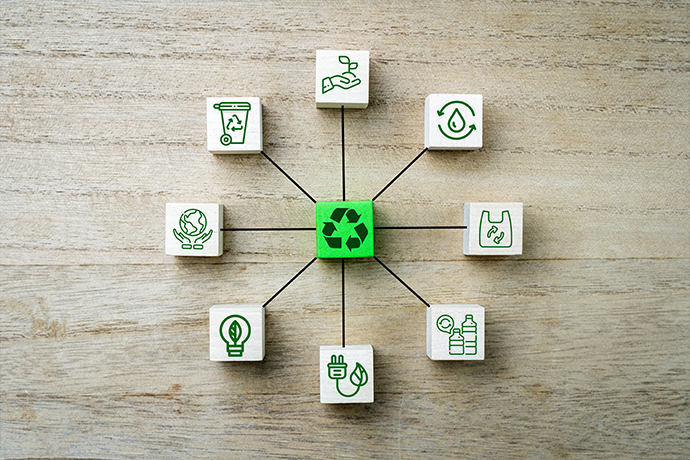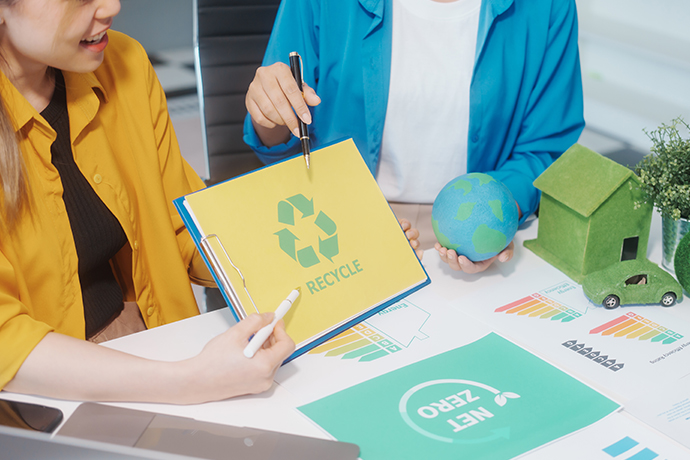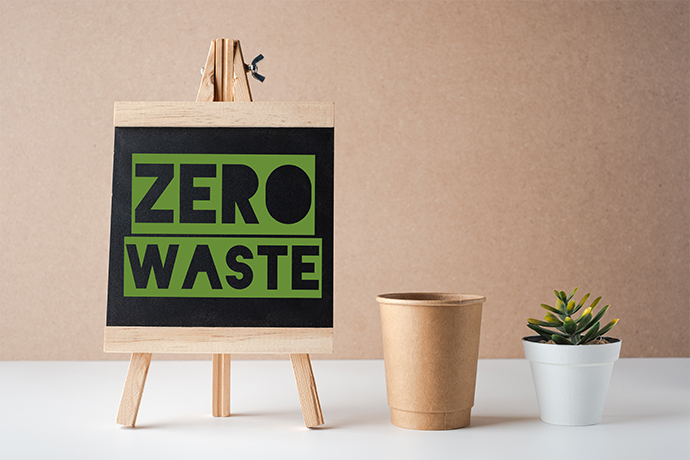 SPEAKERS
SPEAKERS
Discover the potential of the circular economy. Learn the science behind sustainable business practices, how to reduce waste effectively, and the benefits of a waste-free approach for long-term success.

Can we truly envision a world where businesses operate without generating waste? The concept of a circular economy offers an inspiring glimpse into this possibility. As companies strive to align with sustainability goals, the notion of eliminating waste becomes not just a dream but a tangible reality. This aspiration is driven by an increasing understanding of our environmental responsibilities and the potential for innovation in business practices.
Imagine a future where every product, resource, and process is part of a continuous loop, contributing to a thriving economy that respects our planet's limits. This inspirational journey explores whether a completely waste-free business is within our reach, encouraging us to rethink how we produce, consume, and regenerate. It challenges us to go beyond traditional models, seeking deeper connections between industries and the natural world.
The question "what is circular economy?" often arises as businesses seek new models for sustainable operations. This innovative concept reimagines the current take-make-dispose model, seeking to transform it into a closed-loop system. Goods within a circular economy are designed for long-term use, repair, and recycling, meaning that they remain in circulation rather than becoming waste.
The idea is to move away from a linear economy where resources are extracted, used, and discarded. Instead, the circular economy encourages the creation of products that maximise resource efficiency and minimise waste. It’s a paradigm shift that urges businesses to think beyond immediate profit and consider the long-term impact of their actions.
By fostering a culture of innovation and creativity, the circular economy and sustainability become intertwined. Companies are inspired to develop solutions that are not only economically viable but also environmentally responsible. This approach supports a broader vision of sustainability, where environmental stewardship and economic success are integrated rather than seen as opposing forces.

The principles of circular economy define its framework: design out waste and pollution, keep products in use, and regenerate natural systems. By applying these principles, we challenge the notion that economic growth requires environmental harm. Instead, businesses create value through resilience, efficiency, and resourcefulness. This holistic approach not only enables companies to reduce their carbon footprint but also nurtures a culture of innovation, fostering a new wave of future-ready enterprises.
Incorporating these principles means more than just changing processes; it involves a profound shift in business philosophy. Companies begin by designing products for longevity, considering the entire lifecycle from the outset. This mindset encourages manufacturers to utilise materials optimally, choosing those that can be recycled or biodegraded, thereby minimising waste.
Another key aspect is the embrace of renewable resources over finite ones, ensuring that production and consumption do not deplete the planet’s natural reserves. Promoting regenerative practices within communities and industries supports ecosystems' ability to thrive, creating a healthier environment for future generations. Innovation becomes the driving force as companies experiment with reuse and recycling methods that not only preserve materials but also inspire new product lines.
So, what is the driving force behind the circular economy theory? It challenges linear thinking, proposing a holistic approach to business and the environment. The theory encourages a redesign of systems rather than individual products. Each component within a business model is re-evaluated to maximise lifecycle and minimise waste.
This shift in mindset lays the groundwork for profound economic and environmental benefits. The concept sees waste as a valuable resource, turning the notion of disposal on its head. By viewing waste as an opportunity, businesses are inspired to create new value streams. This approach enables cost savings and enhances environmental responsibility.
Furthermore, circular economy theory intertwines with technological advancement, facilitating innovative solutions. For instance, digital platforms can optimise resource usage and track components throughout their lifecycle. This enhances transparency and increases efficiency. The theory also encourages collaboration across industries and supports the sharing of best practices and innovative ideas.

Real-world examples of circular economy serve as powerful inspiration, showcasing how innovation can lead to both profitability and sustainability. Across various industries, companies are redefining traditional practices to transform waste into valuable resources, paving the way for sustainable growth. One notable instance is seen in retailers like Ikea, who design products with the end-life in mind, ensuring that items can be easily disassembled and reused or recycled.
In the fashion industry, brands are increasingly adopting recycled materials, demonstrating a commitment to reducing their environmental impact. Clothing companies are embracing the use of biodegradable fabrics or materials repurposed from plastic waste, setting a new standard for ethical production. Likewise, in the technology sector, firms are focusing on creating products that are easy to repair, encouraging consumers to fix rather than discard devices. This shift not only conserves natural resources but also promotes consumer engagement through innovative repair services.
These pioneers exemplify that a waste-free future is more than just a possibility; it is a tangible goal that can be achieved through collaboration and creativity. By rethinking production processes and business models, these companies illustrate how the circular economy and sustainability are inextricably linked, providing a roadmap for others to follow.
A pivotal part of this journey involves waste management strategies. By minimising waste through mindful consumption, recycling, and reusing, companies can reduce their environmental footprint. Innovative waste solutions, such as digital tools and collaboration with recycling partners, provide new avenues for efficiency. Businesses are beginning to see waste management not as a burden but as an opportunity to innovate and cut costs while contributing to a more sustainable future.
The landscape of waste management is evolving, shifting from traditional landfill methods to more sustainable solutions like composting and anaerobic digestion. These techniques convert waste into useful products, such as biogas or nutrient-rich compost, reducing reliance on fossil fuels.
For instance, some companies are investing in advanced digital tracking systems to better manage waste flows and material inputs. This not only helps in reducing waste but also in identifying opportunities for using secondary raw materials. Additionally, education and training in waste management empower employees to make informed decisions, fostering an organisational culture that prioritises sustainability.

As businesses explore sustainable pathways, economy speakers and sustainability speakers offer valuable insights. Gaining knowledge from experts in the field can guide companies in their circular transformation journey. Thought leaders provide inspiration and practical solutions, bridging the gap between theory and practice in the ever-evolving landscape of waste management.
The journey towards a circular economy is undoubtedly challenging but also filled with potential. By redefining traditional business practices, we can achieve a balance of economic growth and environmental stewardship. The prospect of a waste-free world energises industries, prompting them to rethink their approach to production, consumption, and waste. This vision of a sustainable future is not just possible; it is within our grasp, fueling hope and innovation worldwide. Through collective effort and commitment to waste management, a harmonious relationship between industry and nature can be realised.